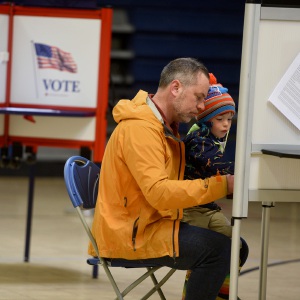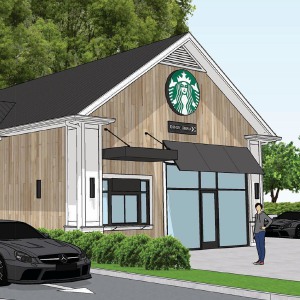Lebanon program aims to prevent unnecessary medical care
| Published: 02-01-2023 6:06 AM |
LEBANON — Two city-based health care programs aim to prevent unnecessary trips to the emergency department and hospital readmissions.
The initiatives, one based out of the Lebanon Fire Department with support from Dartmouth Health and the other at Alice Peck Day Memorial Hospital, have rolled out in part to address needs of aging residents, but also to help preserve scarce health care resources for those who most need them.
The programs provide care and help people navigate the health care system amid a health care workforce shortage, full Upper Valley emergency departments and a shortage of hospital beds.
Lebanon Fire Chief James Wheatley describes the work of the Lebanon Mobile Integrated Health program — a partnership between the city of Lebanon and Dartmouth Hitchcock Medical Center that is in the third year of a three-year pilot — as a “huge extension of (the fire department’s) public health” role.
Through the program, a community paramedic and two part-time community nurses prevent unnecessary ambulance trips, follow up with patients after hospital discharges and provide chronic and preventive care to patients at home. The program, which currently serves people in Lebanon and West Lebanon, has been so successful that Wheatley said the department hopes to expand it to Grantham and Enfield and bring one of the nursing positions up to full time.
Currently, DH fully funds the paramedic’s salary and supplies and pays $75,000 for the nurses, which amounts to 80% of their cost, Wheatley said. The city picks up the remainder.
In a recent interview at the fire station in downtown Lebanon, paramedic Jeremy Thibeault and community nurses Amanda St. Ivany and Rachael McMillan outlined the various ways they have helped city residents over the course of the past year.
St. Ivany and McMillan saw 92 unique patients for a total of 1,310 total encounters in 2022, while Thibeault saw 53 patients for a total of 315 encounters, according to the program’s annual report.
Article continues after...
Yesterday's Most Read Articles
 Kenyon: Dartmouth alumni join union-busting effort
Kenyon: Dartmouth alumni join union-busting effort
 Hartford voters approve school budget and building repair bond
Hartford voters approve school budget and building repair bond
 Starbucks store planned for Route 120 at Centerra
Starbucks store planned for Route 120 at Centerra
 Local Roundup: Hanover pitcher throws a perfect game
Local Roundup: Hanover pitcher throws a perfect game
 Parker up for parole more than 2 decades after Dartmouth professor stabbing deaths
Parker up for parole more than 2 decades after Dartmouth professor stabbing deaths
The program also hosted free blood pressure and blood sugar screenings at different Lebanon Housing Authority properties. Through the clinics, the team saw 27 people, two of whom were referred for nursing services and two who had needs requiring rapid attention. Using the online medical record system and relationships with providers members of the mobile team have developed they were able to help get the patients in to be seen quickly.
The nurses have carried over some patients from when the Lebanon community nurses were based out of the Upper Valley Senior Center. They also receive referrals from health care providers and community members. Thibeault sees patients who are referred to him by a DH provider, but he said many if not most people in the Upper Valley see a DH provider of one kind or another. He sometimes fills in the gaps before visiting nurses can see a patient who has recently been discharged from the hospital, caring for wounds, for example.
In some cases, the nurses have helped patients participate in telehealth appointments such as balance screenings that they wouldn’t otherwise be able to access. In others, they have followed patients over a period of months, connecting them with other services they may need.
The nurses followed Gary Martin, 62, of Lebanon, for 10 months while he was wheelchair-bound after he was transported to the hospital with a broken foot in December 2021. Martin is now in recovery from alcoholism. He credits the nurses with checking on his mental health and connecting him with the Lebanon human services department.
In another case, McMillan said the team worked with the Lebanon-Upper Valley Lions Club to get a power lift chair for a man with venous stasis, a condition where blood pools in the lower legs. The chair helps keep his legs elevated to prevent the blood from pooling. Thibeault said the man doesn’t have other furniture and having the ability to put his feet up is “life-saving.”
In a third case, 87-year-old Rita Clark attended the team’s blood pressure clinics at Rogers House, where she lives. Then in December, she called the nurse to tell her that she had fallen while baking brownies to bring to the fire department and police station. During a home visit, the nurses found that she had shoulder pain, as well as pain in her chest. The nurses requested a referral from her primary care provider to the community paramedic for electrocardiogram, or EKG.
Clark brought the brownies to the fire station and Thibeault assessed her, recommending that she go to the emergency department for further imaging. At DHMC, clinicians determined she had spinal fractures and she had a heart attack. She was admitted and subsequently discharged to her niece’s house, which also is in Lebanon, so the community nurses were able to check in with her while she was there. They helped make sure she had the medication she needed.
“They’re very nice people and I enjoy visiting with them,” Clark said of the nurses in a Friday phone interview. She has returned home to Rogers House, but still has a neck brace for the fractures.
“Now I’m back staying by myself and enjoying it,” she said. “I feel fine.”
The team also can respond to welfare checks for people they know. In doing so, they can “lighten the load for police,” St. Ivany said.
The program does have limitations in addition to geography. They are not equipped to respond to cases where someone’s primary complaint is mental health related, McMillan said. They also do not provide care for people who have a lot of family or other support locally.
There are “plenty of people who are alone,” St. Ivany said.
Meanwhile, through APD’s emergency department call-back program nurses follow-up with patients by phone after an emergency visit if they were not hospitalized or already an APD primary care patient. In some cases the nurses can help ensure that patients get the follow-up care they need in a timely fashion.
The idea for the program came in 2021 as APD was getting its accreditation as a geriatric emergency department, Kristie Foster, a manager and clinical educator in APD’s emergency department.
If a patient who comes to the emergency department and isn’t admitted or transferred to another facility is a patient of APD’s primary care team, a message through the electronic medical record goes to the primary care office and someone there follows up with that patient within two days of their visit.
But Foster said, “we have a lot of patients from all over the valley and sometimes out of the valley. How do we know what those PCPs do and how do we know that they even get notified? That’s too much of a variable.”
So Foster took on the task of following up with people over age 65 who had visited APD’s emergency department and not been admitted to the hospital, transferred or connected to APD’s primary care. She’s since adjusted the age upward to 70 and older after finding that younger people were often working or at the gym when she called. Overall, she found that people were surprised and appreciated the follow-up. In some cases, particularly for people in rural areas, she found she was the only person they talked to all week.
In one case, Foster said she called a woman who had been to the emergency department for pain, but the providers were unable to find the source of the pain. They sent her home with a patch and she was taking over-the-counter medications like Tylenol and ibuprofen to manage the pain. But at the time Foster called, the woman’s pain was a nine out of 10.
The patient couldn’t get in to the pain clinic for a few months, nor could she get in to see her primary care provider for a few weeks. She and her husband, who Foster also spoke with, “just seemed very hopeless.”
But Foster called around and was able to get her in with a primary care provider that day and into the pain clinic later that week.
“She was blown away,” Foster said. “She used to be a nurse.” The patient told Foster “she would have been so proud to work alongside of us because of our kindness and compassion. And I was crying and she was crying and I’m like, ‘OK this is it; this is what we need.’ ”
More information about the Lebanon Mobile Integrated Health program is available by emailing the team at MIH@lebanonnh.gov.
Nora Doyle-Burr can be reached at ndoyleburr@vnews.com or 603-727-3213.

 James Parker granted parole for his role in Dartmouth professors’ stabbing deaths
James Parker granted parole for his role in Dartmouth professors’ stabbing deaths
